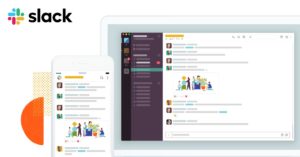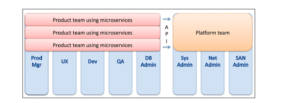Ubiquity6: Augmented Reality Platform with Ankit Kumar
Podcast: Play in new window | Download
Subscribe: RSS


Augmented reality glasses will let us walk through a world where the digital blends together with the physical. 3-D objects will be rendered and superimposed onto our field of vision, creating an environment for people to build applications we can hardly dream of today.
These augmented reality glasses are probably three to five years away from being ready for consumer use. But developers are already building augmented reality applications for smartphones using Apple ARKit and Android ARCore. These augmented reality toolkits use powerful smartphone processors and computer vision to give developers simple primitives for placing and manipulating 3-D objects.
Most of these AR applications are made for a single phone, and AR is useful for a single phone–for example, you could hold your phone up in front of an empty room, and see on your phone how it would look if you had an IKEA couch sitting in the middle of that room.
But shared augmented reality experiences are much more exciting.
Shared augmented reality can allow us to play a game of virtual basketball, both controlling the game that is synchronized between us. Shared AR would let me go to a restaurant, and create a virtual billboard in front of the restaurant that only you could see when you walked up to the restaurant and held your phone in front of you.
Ubiquity6 is a company with the goal of enabling shared AR experiences. Ankit Kumar is the co-founder and CTO of Ubiquity6, and he joins the show to explain why building shared AR is a challenging technical problem. It requires building a digital model of the real world, and mapping that model to coordinates in space, so that users can reliably persist augmented reality objects that each other can see.
We discuss computer vision, digital mapping, the increasing power of phone processors, and the potential of shared AR.
Transcript
Transcript provided by We Edit Podcasts. Software Engineering Daily listeners can go to weeditpodcasts.com/sed to get 20% off the first two months of audio editing and transcription services. Thanks to We Edit Podcasts for partnering with SE Daily. Please click here to view this show’s transcript.
Sponsors
Get ready to build content-rich websites and professional web applications with Wix Code. Store and manage unlimited data with built-in databases, create dynamic pages, make custom forms and take full control of your site’s functionality with Wix Code APIs and JavaScript. Plus, now you can get 10-percent off your Premium plan. Go to Wix.com/SED.
Triplebyte is a company that connects engineers with top tech companies. We’re running an experiment and our hypothesis is that Software Engineering Daily listeners will do well above average on the quiz. Go to triplebyte.com/sedaily.
OpenShift is a Kubernetes platform from Red Hat. OpenShift takes the Kubernetes container orchestration system and adds features that let you build software more quickly. OpenShift includes service discovery, CI/CD, built-in monitoring and health management, and scalability. With OpenShift, you avoid getting locked into any particular cloud provider. Check out OpenShift from RedHat, by going to softwareengineeringdaily.com/redhat.
HPE OneView integrates compute, storage, and networking resources across your data center and leverages a unified API to enable IT to manage infrastructure as code. Deploy infrastructure faster; simplify life cycle maintenance for your servers; give IT the ability to deliver infrastructure to developers as a service like the public cloud. Go to softwareengineeringdaily.com/hpe and learn about how HPE OneView can improve your infrastructure operations.























